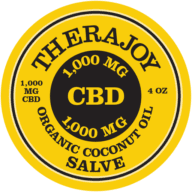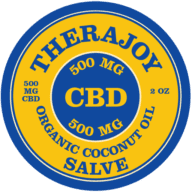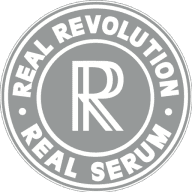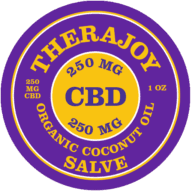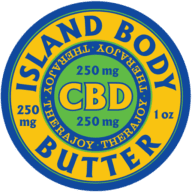
Summary:
Whenever multiple drugs are taken, there is a chance an interaction among the drugs will occur. Virtually all chemical compounds, from over-the-counter drugs and prescription pharmaceuticals to illicit substances, interact with other compounds. Drug interactions are complex and often unpredictable. A known interaction may not occur in every individual. While CBD produces very few side-effects and is considered to be generally safe for use, there are some risks that should be properly understood by all CBD users.
In this article, we discuss drug interactions, predicting drug interactions, additive vs. synergistic interactions, CBD drug interactions, the cytochrome P450 enzyme system, documented CBD drug interactions, and the grapefruit test.
Understanding CBD Drug Interactions

Whenever multiple drugs are taken, there is a chance an interaction among the drugs will occur. The chemical interactions may increase or decrease the effectiveness of the drugs or their side effects, and the chances of drug interactions increase with the number of drugs being taken.
Drug Interactions
Whenever you consume a chemical compound, you must consider the possible interactions. Even innocuous and common chemicals like caffeine have interactions, some of which can be severe. Similarly, cannabidiol, while well tolerated by most users, has some interactions.
Virtually all chemical compounds, from over-the-counter drugs and prescription pharmaceuticals to illicit substances, interact with other compounds. There are, for example, 82 identified drug interactions with caffeine (of which 25 are classified as moderately severe to severe). Even seemingly benign substances, like grapefruit, are known to interact with many prescription drugs.

Can Drug Interactions Be Predicted?
Drug interactions are complex and often unpredictable. A known interaction may not occur in every individual. This can be explained because there are several factors that affect the likelihood that a known interaction will occur. These factors include differences among individuals in their:
- genes,
- physiology,
- age,
- lifestyle (diet, exercise),
- hydration,
- underlying diseases,
- drug doses,
- the duration of combined therapy, and
- the relative time of administration of the two substances. (Sometimes, interactions can be avoided if two drugs are taken at different times.)
Additive Vs. Synergistic
Before discussing CBD drug interactions further, it’s important to understand interactions in terms of medicine and pharmacology. There are two types of interactions – additive and synergistic.
Additive simply means the interaction between two chemicals equals the sum of their parts (e.g. 1+1 = 2). Synergistic means that when two chemicals interact, the effect is greater than the sum of their parts (e.g. 1+1 = 3. Sounds like “alternative math!”).
CBD Drug Interactions
While CBD produces very few side-effects and is considered to be generally safe for use, there are some risks that should be properly understood by all CBD users.
Research has begun to demonstrate that cannabidiol (CBD) has the potential to effectively help a large number of people. CBD interacts with the endocannabinoid system in a way that produces very few unintended side-effects.
While the majority of the vast majority of the science indicates CBD is safe for use and consumption, it does pose a few risks that, if not properly understood, could be dangerous.

Cytochrome P450 Enzyme System
Part of your liver, the cytochrome P450 enzyme system is responsible for metabolizes any potentially toxic compounds you ingest, including over 60% percent of any drugs you have ever consumed.
CBD can inhibit the cytochrome P450 system’s ability to metabolize certain drugs, leading to an overall increase in processing times.
One of these risks is the inhibition of the cytochrome P450 enzyme system.
…According to Davis’s Drug Guide, this system contains more than 50 enzymes that process and eliminate toxins.

Documented CBD Drug Interactions
What drugs should you be concerned about? Due to the fact that the cytochrome P450 is well-documented, there is a list of known interactions.
Any drug metabolized by CYP450 enzymes could potentially interact with cannabidiol. According to the Indiana University Department of Medicine, drugs known to use the CYP450 system include:
- Anesthetics
- Angiotensin II Blockers
- Anti-epileptics
- Antiarrhythmics
- Antibiotics
- Antidepressants
- Antihistamines
- Antipsychotics
- Benzodiazepines
- Beta-blockers
- Calcium Channel Blockers
- HIV Antivirals
- HMG CoA Reductase Inhibitors
- Immune Modulators
- NSAIDs
- Oral Hypoglycemic Agents
- PPIs
- Prokinetics
- Steroids
- Sulfonylureas
This list does not include all of the potential medications impacted by cannabidiol. Nor will every medication in the categories contained on this list will cause an interaction. For these reasons, you should consult with a medical professional before supplementing with CBD.
Another potential interaction could come in the form of prodrugs. A prodrug is compound that, on administration, must undergo chemical conversion by metabolic processes before becoming an active pharmacological agent; a precursor of a drug.

The Grapefruit Test
If you are taking another medication not found on the list above, and are still concerned about a possible interaction with CBD, then we recommend the grapefruit test.
Have you ever been told not to take your medication with grapefruit? This is because compounds in grapefruits can interfere with the metabolism of many medications.
CBD does the same thing. But as I said above, the effect is even stronger with CBD.
Do the grapefruit test with your doctor or pharmacist. Ask them: “Should I avoid eating grapefruits or drinking grapefruit juice with this medication?”
They will know exactly what you are talking about. If they say yes, you should avoid grapefruits with your medication, you now know you need to be careful about mixing CBD with those same meds as well. Talk to your doctor about CBD and tell them about it if they say you should avoid grapefruits with your medication.
At TheraJoy, we are proudly a market leader in topical CBD products. TheraJoy is always made with 99% pure CBD derived from medical grade, non-GMO hemp, sourced directly from Switzerland. We offer purity you can trust, guaranteed.
Remember, always consult your doctor before you begin taking a supplement or make any changes to your existing medication and supplement routine. This blog post is not intended to be medical advice, but it is information you can use as a conversation-starter with your doctor at your next appointment.


